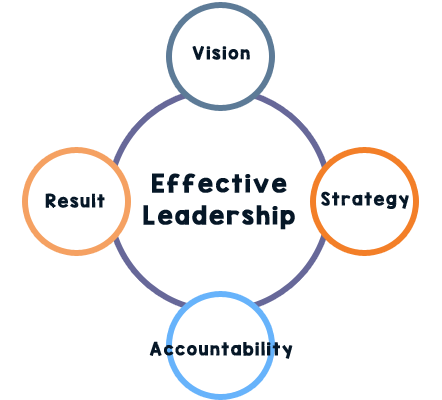
Effective Leadership Skills
Exploring effective leadership skills requires a distinction between managers and leaders, though there’s much overlap. Managers are paid to tame complexity. Leaders are valued for driving change. In this distinction, you might be a good manager but not a good leader. CEOs and other senior leaders must have skills in both areas. Even if they delegate day-to-day tasks to a management team, leaders need to understand that driving change must include taming complexity in order to execute.
Because you got beyond the first paragraph, I assume your intent is pure and you want to understand how to lead a team to do great things minimizing coercion. You can get compliance (for a while) by paying exorbitant wages or using psychological or physical control. If that’s your interest, you’ve found the wrong guy. There’s a Prince of a fellow named Machiavelli whom you may want to study, or perhaps Nicolás Maduro of Venezuela. The rest of you, stick with me.
“Effective leadership skills fall into four large buckets:”
Effective Leadership Skill No. 1: Understanding others
As your mother, spouse or significant other may have said to you, “It’s not really all about you!”
Understanding others (e.g., customers, employees and board members) is foundational in order to lead. You must create an environment where they want to engage in the actions required for your business to succeed. And if you don’t know what motivates them, you can’t do this!
There are many pieces to this, including active listening, empathy, directing, coaching, and delivering both positive and negative feedback, to name a few.
There are some jobs where you can be very successful in an individual performance role without understanding others, but you can’t be a successful leader without this skill—just a tyrant. You must have some innate ability in this area, but coaching and dedication on your part will lead to dramatic improvement.
Effective Leadership Skill No. 2: Strategic thinking
In its most basic form, business strategy requires thinking about the future, creating a compelling picture in that future, identifying current reality, and then crafting a strategy that will connect today to your desired future.
If that sounds mystical, it isn’t. It’s a learned skill. It requires some systems thinking, a process and a framework to do the observing, and future-focused thinking, an ability to deal with ambiguity and some planning skill. All this is learnable.
Effective Leadership Skill No. 3: Business acumen
OK, it’s not a skill, it’s knowledge. Gimme a break!
If you’re going to lead effectively, you need both content and process knowledge. Then, of course, you need to apply it. (I cover much of this in my book “Never Kick a Cow Chip on a Hot Day — Real Lessons for Real CEOs and Those Who Want to Be.”)
You don’t have to be an expert at everything to be an effective leader, but you do need to understand the financial underpinnings of your business model, the core tenets of your operations, how you’ll acquire and keep customers (i.e., sales and marketing), how to leverage technology and a bit of business law. All learnable!
Effective Leadership Skill No. 4: Communication
I’ve yet to meet an effective leader who can’t communicate at a high level. Your third-grade teacher may have told you to “keep your thoughts to yourself,” but that dog don’t hunt when you’re leading others. My best clients work very hard at communicating effectively.
Think about the great communicators you’ve encountered. I like to recall Ronald Reagan, because my father-in-law looked like him and had the same wonderful speaking style. It always felt like you were having a scotch with a wise old friend next to the fireplace!
These are the specific areas I’ve worked on with some of my clients to improve their communication capability:
- Humility
- Specificity
- Passion
- Humor
Improving leadership skills requires you to break down these large concepts to actionable activities, prioritize, create an action plan, identify resources and roadblocks, and wrap that all up with a good deal of self-discipline. (This is what you’d do with me as your coach!)
Every business environment is situation-specific, but all effective leaders have adequate, if not very high, proficiency in the skills identified above.